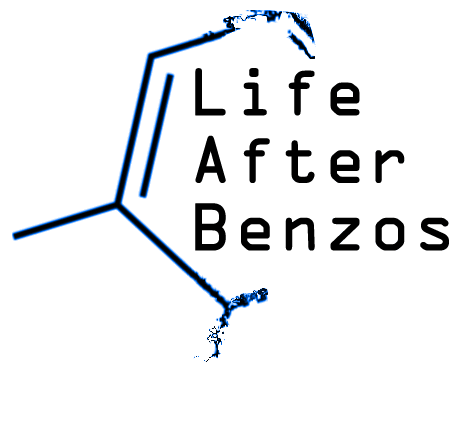Gamma-aminobutyric acid (GABA) is the brain’s primary inhibitory neurotransmitter. When neurons start firing excessively, you feel anxiety. If they continue firing unabated, you could have a panic attack, or even worse, a seizure.
GABA is like the bouncer who restores order to a rowdy bar. It slows down neural activity.
Benzos make GABA more efficient at binding with its own receptors, thus making the effects of GABA more pronounced. When someone says benzos “take the edge off,” they are talking about this increased efficiency.
That sounds like it could be a good thing. And it is, at first.
The problem is that your brain wants homeostasis. When you suddenly allow GABA to have this outsized effect, your brain introduces countermeasures. One of these countermeasures is glutamate, the brain’s excitatory neurotransmitter. GABA slows neural activity. Glutamate speeds it up.
So now glutamate is working your neurons into a frenzy to try and balance out the neutralizing effects of GABA. Then the benzo wears off. The GABA is no longer hyper efficient at binding with its receptors. Your GABA is underperforming, and you have an excess of glutamate. This is one reason why you have interdose anxiety and withdrawal.
What does excess glutamate feel like? Have you ever had too many cups of coffee? That’s what it feels like. If you add panic and anxiety into the equation, you are looking at one of the more unpleasant sensory experiences you can have as a human being.
Down-regulation of the GABA System
An overactive glutamate system might be temporarily tolerable. But chronic benzo use has more insidious consequences. Over time, your brain starts to down-regulate your GABA receptors. Take a benzo once and your brain can shrug it off. Take it every day and your brain starts to restructure itself.
Imagine an oil company that has 20 drilling rigs. If five of the rigs are over-performing, the company may opt to decommission some of the other 15 rigs. This is what’s happening with your GABA receptors. Your brain is effectively decommissioning them due to a benzo-fueled excess of GABA potency.
There is strong evidence that your brain begins to down-regulate GABA receptors after two weeks of use. Months and years of benzos can cause near-permanent structural changes. If you stop taking benzos suddenly after chronic use, you will undoubtedly suffer crippling anxiety, panic attacks and possibly seizures.
Absent the benzos, your brain no longer knows how to function. The benzos were overclocking your GABA receptors and masking the fact that the engine underneath was no longer running like it used to. You need those de-commissioned GABA receptors, but like de-commissioned oil rigs, you can’t instantly get them back up and running again.
This is why it is incredibly important to ease yourself off benzos slowly.
You may be asking, why stop taking benzos in the first place? My brain has adjusted to my benzo intake and found a new homeostasis. What’s the problem? Here are my thoughts on that.
Tapering to Avoid Miserable Withdrawal and Recovery
If you want to give your brain the ultimate rug pull, stop taking a benzo cold turkey.
If a rug pull for your brain sounds like a bad idea, congratulations, you are not an idiot.
The sensible thing to do is to slowly lower your dosage over a period of months and perhaps years. Usual disclaimer: this is not medical advice. Talk to a doctor. Preferably one that knows about the harm benzos can inflict, and the importance of tapering. You can check out the Benzodiazepine Info Coalition for resources on this.
Without a proper taper, the list of physical and neurological acute withdrawal symptoms is exhaustive. And acute withdrawal symptoms are just the tip of the iceberg. The true soul crusher is the mercurial world of post-acute withdrawal symptoms (see my article on acute and post-acute withdrawal symptoms).
While the duration of post-acute withdrawal symptoms varies from person to person, you can expect months to years, not days and weeks. The road to recovery is long, and it is not a straight line.
Your brain needs TIME to heal. Everyone’s brain can heal. Some may just take longer than others.
Keep this in mind at all times during your recovery: your brain can and will heal if given enough time.

0 Comments